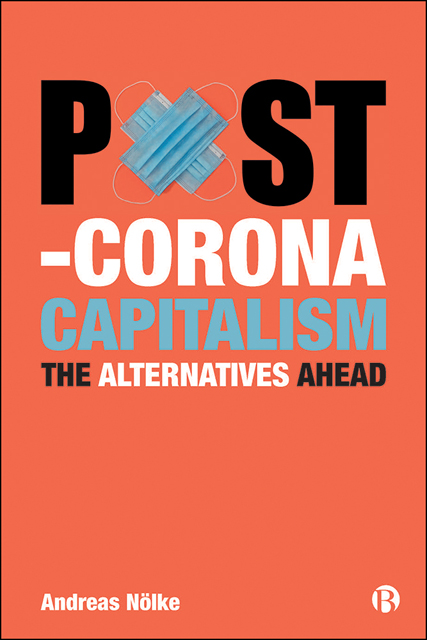Book contents
- Frontmatter
- Dedication
- Contents
- List of Abbreviations
- Acknowledgements
- Preface
- 1 Introduction: Confronting a Multidimensional Crisis of Capitalism
- Part I Capitalism and Society
- Part II Domestic Institutions of Capitalism on the Demand Side
- Part III Domestic Institutions of Capitalism on the Supply Side
- Part IV The International Institutions of Capitalism
- Part V Anthropocene Capitalism
- Part VI Geo-economic Shifts in Global Capitalism
- Part VII Ideologies in Contemporary Capitalism
- References
- Index
10 - Tax Policy: Conventional or Unconventional Measures?
Published online by Cambridge University Press: 13 October 2022
- Frontmatter
- Dedication
- Contents
- List of Abbreviations
- Acknowledgements
- Preface
- 1 Introduction: Confronting a Multidimensional Crisis of Capitalism
- Part I Capitalism and Society
- Part II Domestic Institutions of Capitalism on the Demand Side
- Part III Domestic Institutions of Capitalism on the Supply Side
- Part IV The International Institutions of Capitalism
- Part V Anthropocene Capitalism
- Part VI Geo-economic Shifts in Global Capitalism
- Part VII Ideologies in Contemporary Capitalism
- References
- Index
Summary
The countries at the top of the economic hierarchy – the US, Germany and a few other economies in the Global North – still have flexibility to increase their debt (see Chapter 9 and Chapter 23) and/or to rely on money creation by their monetary authority (see Chapter 8). However, the fiscal flexibility of most other economies is limited, and they will have to resort to tax policy to fill their treasuries in the medium to long run. During the coronavirus crisis, tax policy focused on tax relief and referrals, in order to support companies and stabilize domestic demand (Collier et al, 2020). After the crisis, however, the focus of policy debates rather will be on increasing taxation, given depleted public budgets. Tax increases, however, are very unpopular politically. The key question is whether governments will respond by finding unconventional new sources of revenue or whether they will rely on the conventional ones. Given that there is strong political opposition against increases of conventional taxation, governments might turn towards unconventional measures, such as nationalization of companies or international minimum company taxation standards. The latter option has received considerable media attention since the initiative of the Biden administration in spring 2021.
Taxation in Comparative and International Political Economy
Although taxation is an issue with a long tradition in Political Economy, it did not find much attention in recent decades, outside specialized circles. In Comparative Political Economy, issues of taxation were largely neglected in the company-focused Comparative Capitalism research programme (see Part III on Domestic Institutions of Capitalism on the Supply Side), although tax policy can be seen as a modern form of industrial policy, with different functions in different varieties of capitalism (Haffert, 2019). The macroeconomic research programme on Growth Models spends more attention on tax policies. After all, the latter have played an important role in the emergence of different country-specific models after World War II, with the export-driven Continental economies focusing tax policy on encouraging savings and investment, whereas the domestic demand-driven economies use tax policy to stimulate consumption (Haffert, 2019).
In International Political Economy, the core issue for researchers has been international cooperation between governments.
- Type
- Chapter
- Information
- Post-Corona CapitalismThe Alternatives Ahead, pp. 65 - 71Publisher: Bristol University PressPrint publication year: 2022



